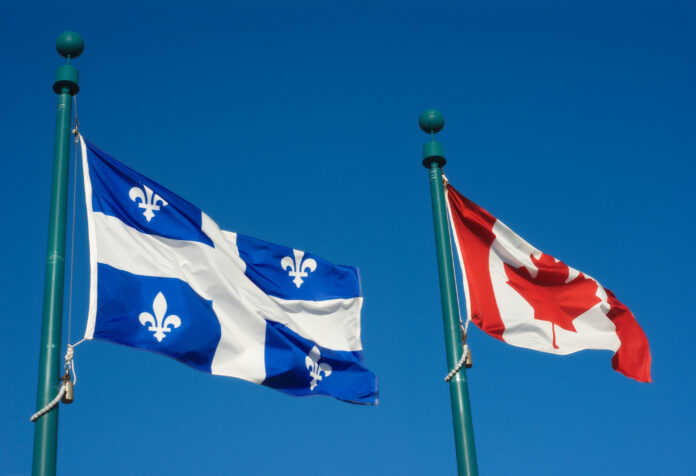
One of the streams of the Quebec Entrepreneur Program (QEP) and the whole Quebec Self-Employed Program (QSP) will only accept applications from Francophones as of Dec. 28.
The affected stream of the QEP is for candidates receiving support from a business accelerator, a business incubator or a university entrepreneurship centre, and who wish to open and manage a business in Quebec.
These programs are not being shut down or paused. The francophone province is simply shutting off applications to those who are not francophones.
Read More Canada Immigration News
Quebec Labour Shortage: Top 10 Most In-Demand Quebec Jobs
Trudeau Says Quebec Well Able To Welcome More Than 100,000 Immigrants Per Year
Quebec’s Latest Levels Plan Sees Province Hold The Line On Immigration
Candidates who wish to apply for these immigration programs will, starting on the Wednesday of the last week of this year, have to demonstrate a Level 7 mastery of French as per the Échelle Québécoise des Niveaux de Compétence en Français des Personnes Immigrantes Adultes, a rating system of French-language competency for adult immigrants.
There will be no limit as to the number of candidates who can apply through those programs who demonstrate that mastery of French.
The second stream of the QEP, the one which is for entrepreneurs who wish to operate a business they created bought with at least 25 per cent of the voting shares or at least 51 per cent of all shares of the enterprise, is already closed.
With this latest announcement, Quebec Immigration Minister Christine Fréchette is effectively, albeit perhaps temporarily, closing the door to the QEP for non-francophones.
“We are taking these measures to prioritize francophone economic immigration,” said Fréchette in French in a statement. “This is why only people with a mastery of French will be able to submit their applications for these two programs for entrepreneurs and self-employed workers in 2023.
“With this decision, we are acting to ensure the survival and vitality of the French language while helping immigrants integrate into Quebecois society.”
This clampdown on non-francophone immigration to Quebec comes roughly three weeks after Quebec Premier François Legault’s speech to open the 43rd session of the National Assembly of Quebec.
In it, Legault made it clear that stopping the decline of the use of French in the province is one of his top priorities and that he sees francophone immigration as a vital to achieving that goal.
All Economic Immigration To Quebec Will Be Francophone By 2026, Says Legault
By 2026, all economic immigrants to Quebec will have to be francophone under Legault’s vision.
“Previous Parti Québécois and Liberal Party governments accepted that 50 per cent (of economic immigrants to Quebec) speak French,” Legault is reported as saying in French in the Le Soleil daily newspaper.
“We have succeeded in the economic immigration categories in increasing that to 80 per cent and we must reach 100 per cent.”
Certainly, Montreal is becoming less francophone as immigration to the province has risen.
Watch Video
In the past two decades, the proportion of people who speak French on the island of Montreal has dropped from 54 per cent to 48 per cent – and that concerns the Quebec premier.
Data from Immigration, Refugees and Citizenship Canada (IRCC) reveals that in the first nine months of this year, economic immigration accounted for almost 65.1 per cent of total immigration to Quebec.
Through the Canadian Experience Class (CEC), Caregiver, and Skilled Worker programs as well as the Entrepreneur, Investor and Self-Employed economic programs, Quebec welcomed 34,165 new permanent residents in the first nine months of 2022.
Although Quebec is well on track to receive 69,987 new permanent residents this year as it makes up for the drop in immigration during the first year of the COVID-19 pandemic, both the provincial immigration minister and Legault have made it clear they will not raise the provincial immigration target much above the current 50,000.
Prime Minister Justin Trudeau Scoffs At Notion Quebec Can’t Integrate More Immigrants
“It is up to Quebec to set its own targets for permanent immigration,” tweeted Fréchette in French after the provincial election.
“The upper limit for Quebec is now 50,000 (new permanent residents) due to our capacity to welcome, provide French-language services and integrate them.”
The francophone province’s immigration minister has maintained that Quebec is already welcoming proportionately more immigrants than do either the United States or France.
“Our position has remained the same: we need more control over immigration to protect the French language,” tweeted Fréchette.
In that tweet – retweeted by Legault without additional comment – the Quebec immigration minister wrote she would be continuing talks with federal Immigration Minister Sean Fraser.
In the 2023-2025 Immigration Levels Plan, Ottawa is targeting 465,000 new permanent residents in 2023, 485,000 new permanent residents in 2024 and 500,000 in 2025.
That’s a total of 1.45 million immigrants to Canada over the coming three years.
Under a provincial-federal agreement, Quebec’s annual share of new permanent residents is to be equal to its demographic clout within Canada. Since the province has 23 per cent of the country’s population, a national immigration target of 465,000 new permanent residents would mean Quebec could accept up to 106,950 new permanent residents next year.
Quebec Holding The Line On Immigration At Just Over 50,000
By 2025, that number would rise to 115,000.
But Legault’s CAQ government is steadfast in its opposition to that level of immigration to the province because Quebec lacks the ability to integrate that many newcomers into the Quebecois society every year.
Prime Minister Justin Trudeau disagrees.
“Quebec at the moment is fully capable of welcoming 112,000 immigrants a year,” the prime minister reportedly told Presse Canadienne.

